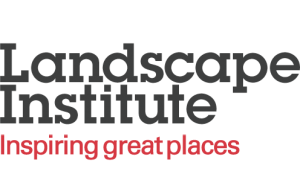LI participates in FCDO-Commonwealth Sustainable Cities Initiative to establish a cross-sector, action-oriented, knowledge-sharing partnership tackling the dual challenges of climate change and rapid urbanisation.
Advancing Sustainable Urbanisation across the Commonwealth
On 2 April 2025, a reception for the Commonwealth Sustainable Cities Initiative was hosted at Marlborough House, London. This reception, attended by Carolin Göhler, LI President, and Andrew Rylah, LI Policy Manager, provided a valuable opportunity for networking and collaboration. The reception underscored the growing global commitment to sustainable urbanization. It marked the concluding day of an important FCDO-organized event that brought together a diverse group of senior stakeholders from across the Commonwealth. Their shared mission is to establish a cross-sector, action-oriented partnership to address the interconnected challenges of climate change and rapid urbanization that many nations face.
The Hon Shirley Ayorkor Botchwey, the new Commonwealth Secretary-General, addressed the reception, highlighting the high-level political support for the Initiative. Speeches focused on enabling parties to work together on tailored projects, recognising the need for locally-developed sustainable urbanization to ensure lasting benefits to communities.
Global Collaboration for a Sustainable Built and Natural Environment
The next day, the UK Built Environment Advisory Group (UKBEAG * ) hosted senior representatives from international organizations: Gulnara Roll (UN Environment), Dyfed Aubrey (UN Habitat), and Ming Zhan (World Bank). Together the group discussed how professional institutes could help alleviate global issues related to affordable housing, disaster relief, and climate change in developing countries.
Carolin Göhler, LI President, emphasized the vital role of integrating landscape-led solutions from the outset into projects. This holistic, yet tailored, approach highlighted the key role played by of biodiversity and water management solutions, and strategic planning.
Locally-aligned solutions were proposed around skills and training, knowledge and guidance, and policy and advocacy. These are essential in addressing capacity building and creating resilient and well-planned environments, despite funding and resource constraints.
Together, the collaborative expertise from landscape and other professionals, and the convening power of their Institutes in support of international aid bodies, can do much to develop sustainable and more equitable environments in which the populations of developing nations can live and thrive.
* UKBEAG comprises the LI, RIBA, RTPI, IStructE and the CAA




